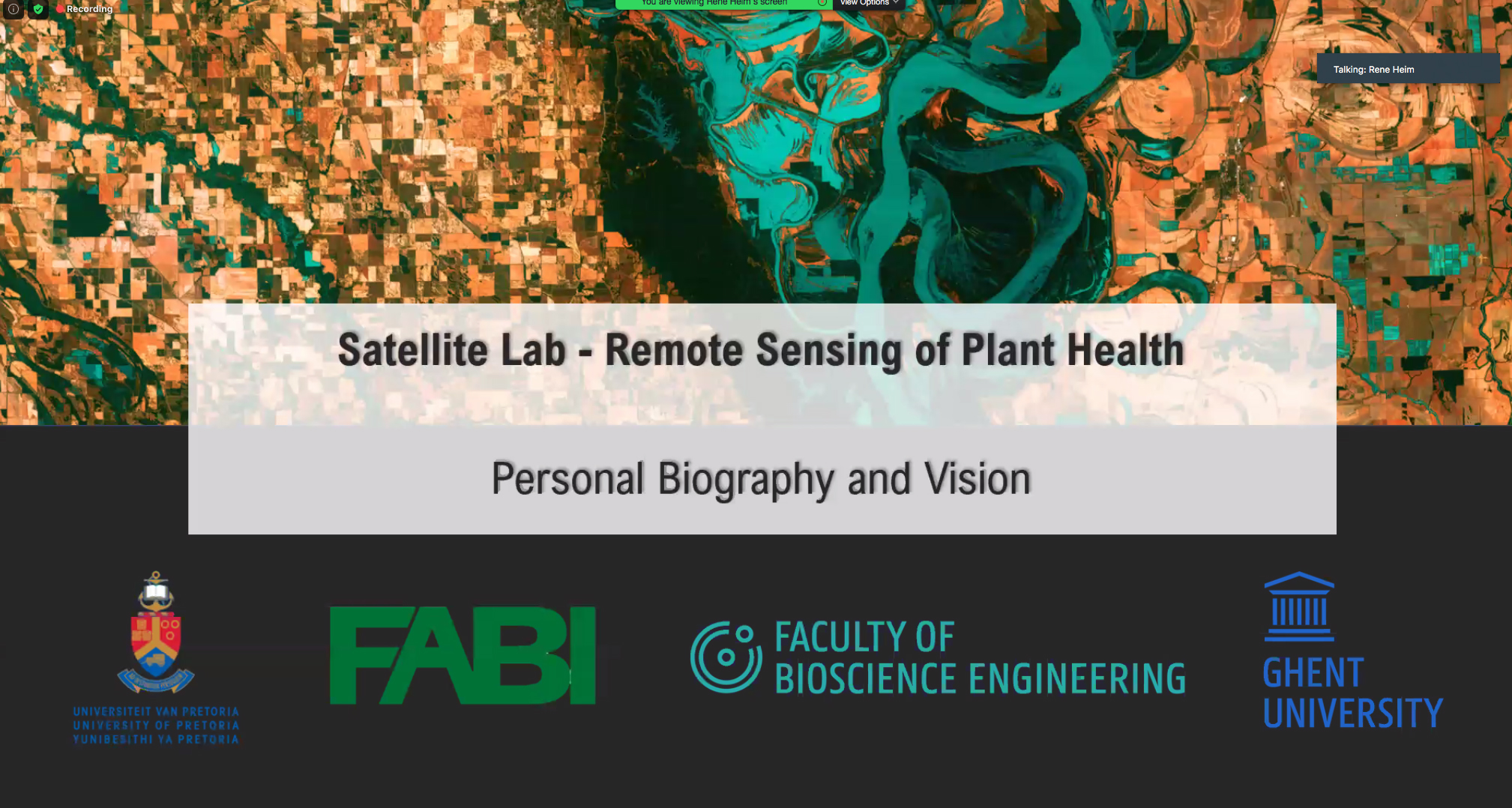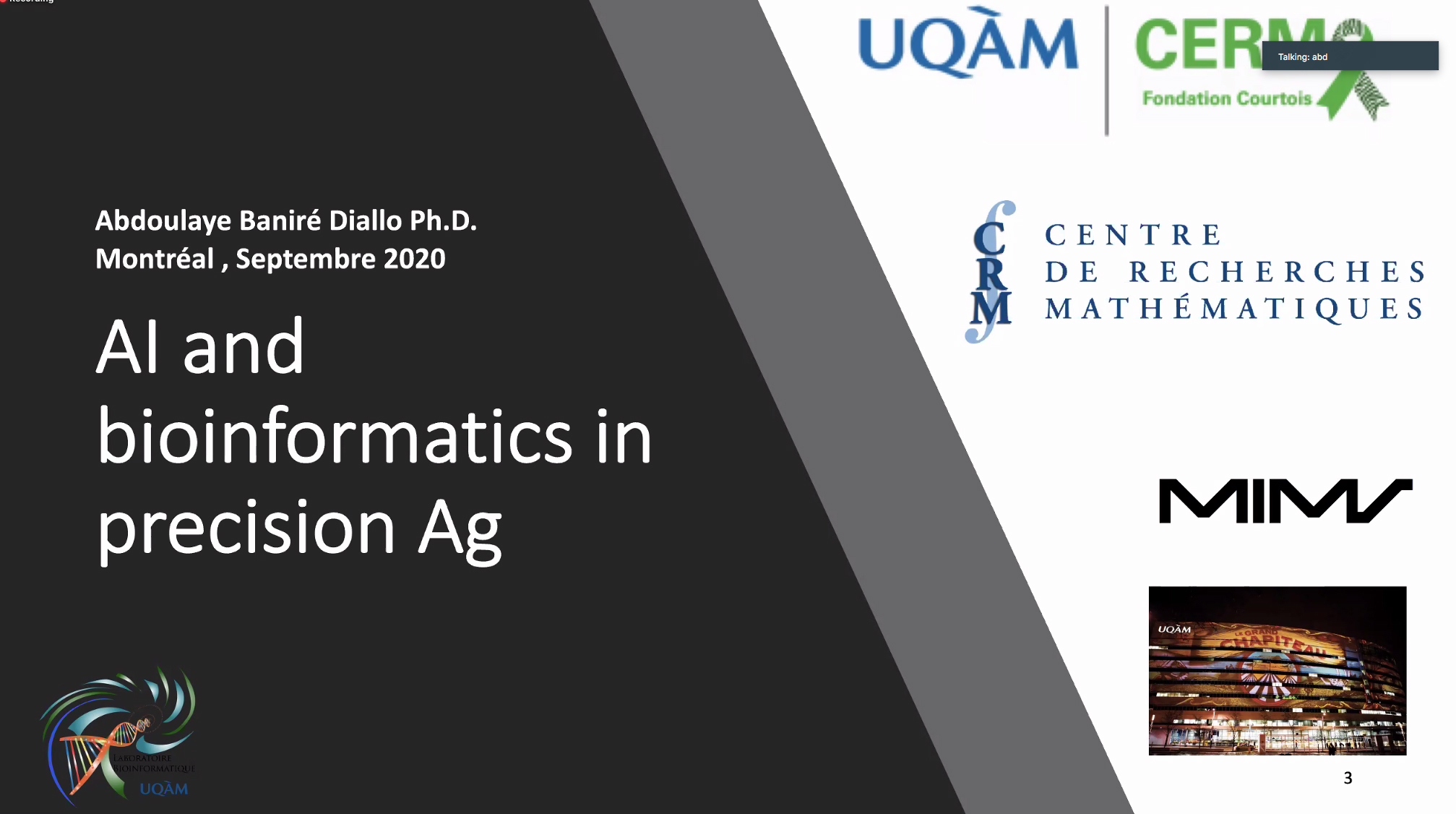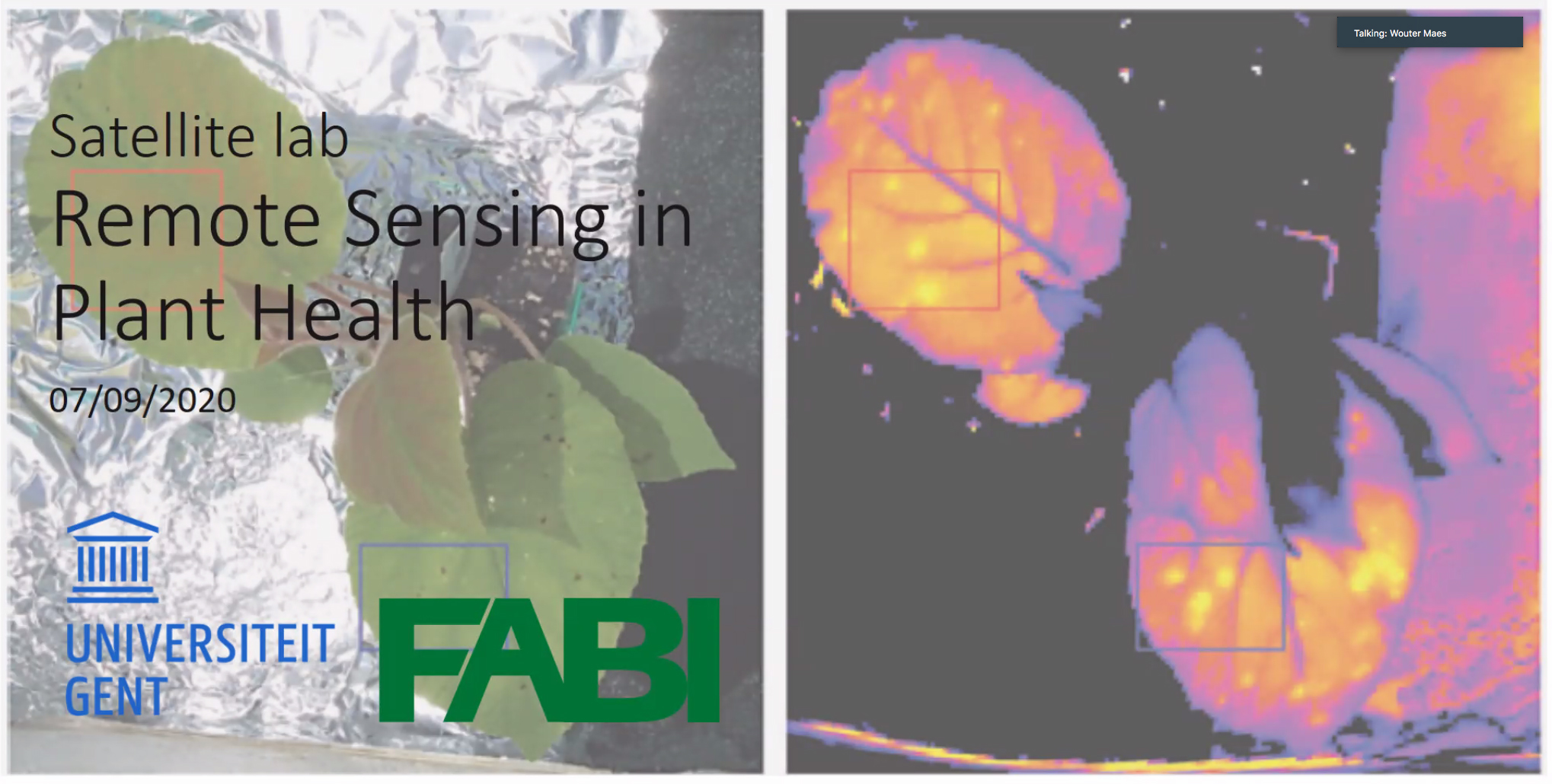FABI advances plant health research in Africa with the launch of two satellite laboratories 2020-09-10
The launch of two satellite laboratories at FABI with prestigious international institutions cements the Institute’s commitment to excellence in transdisciplinary research that advances plant health and food security. FABI launched the Remote Sensing of Plant Health satellite laboratory with the University of Ghent in Belgium and the Artificial Intelligence in Farming satellite laboratory with Université de Québec à Montréal in Canada on 7 September. The launch of the two initiatives brings the number of satellite labs affiliated with the Institute to three, with the Applied Chemical Ecology satellite lab with Natural Resources Canada launched in March.
FABI Director Prof. Bernard Slippers said satellite labs were critical to building capacity and world-class collaborations for long-term research programmes. Vice-Principal: Institutional Planning, Monitoring and Evaluation at the University of Pretoria Prof. Anton Ströh described the launch of the two satellite labs was an “excellent opportunity” for international collaborations across continents and an honour for UP to be linked with leading institutions such as UGent and UQAM. Dean in the Faculty of Natural and Agricultural Sciences Prof. Barend Erasmus described the partnerships as “unique” and an illustration of how leaders in different disciplines could work towards common interests.
The satellite lab in Remote Sensing of Plant Health will harness remote and close-range sensor data (acquire through the use of satellites and unmanned aerial vehicles) to monitor crop and forest health. Dr Rene Heim and Prof. Wouter Maes of the UAV Research Centre at Ghent University. The satellite lab in Artificial Intelligence in Farming is led by Prof. Abdoulaye Banire Diallo of the Bioinformatics Laboratory at UQAM. Various researchers at FABI, the broader University of Pretoria and their associated industry and research partners will participate in the Satellite Lab.








